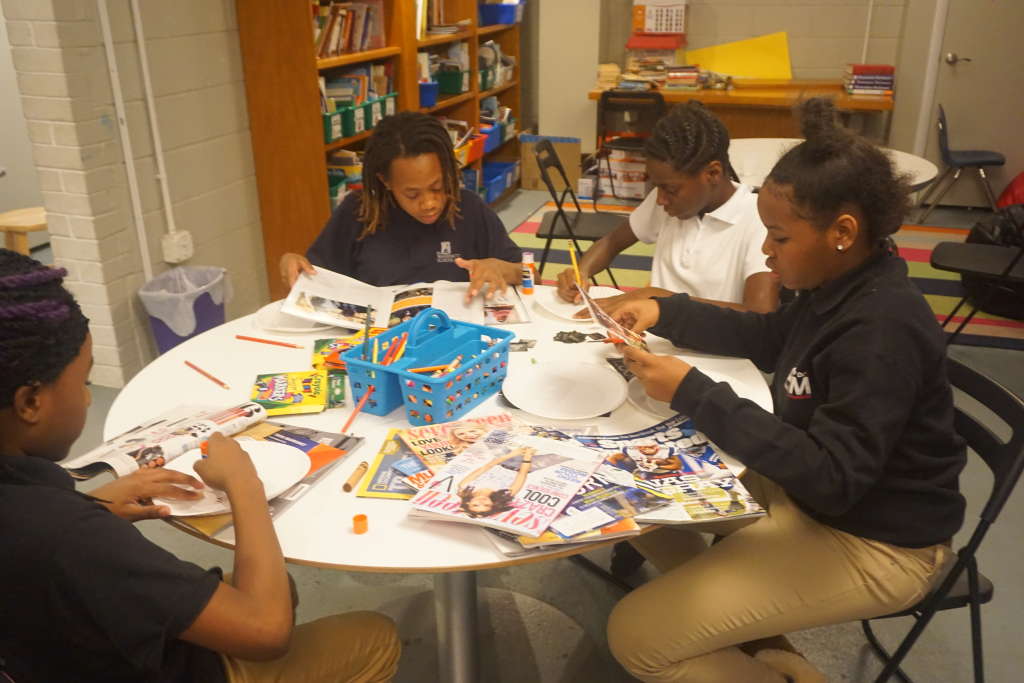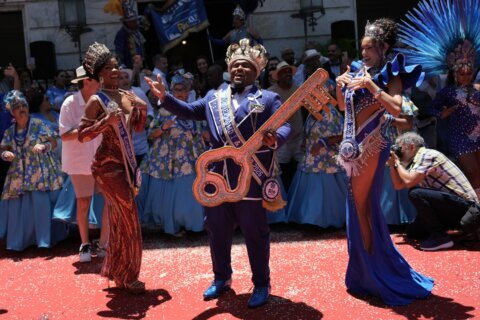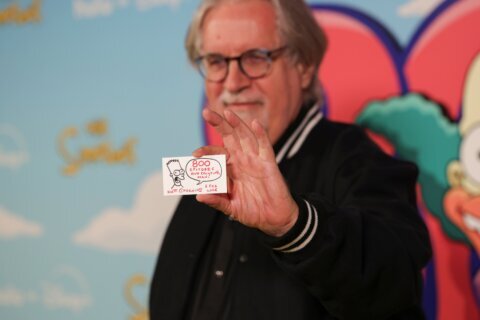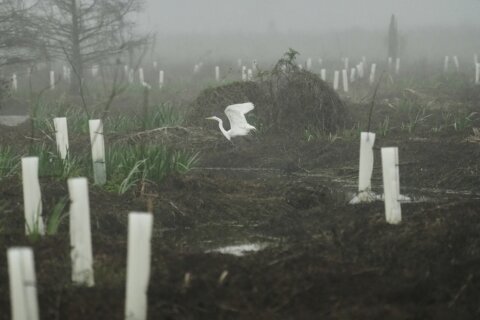WASHINGTON — Every single one of the roughly 500 youth who walk through the doors at Horton’s Kids in Southeast D.C. is familiar with the sound of a gunshot.
Over the summer, gunfire interrupted a water balloon fight the staff set up for children in the community center’s parking lot. Shells joined broken balloon pieces in the puddles on the pavement.
“There were probably a dozen shots and we had children, just right here,” said Robin Berkley, executive director at Horton’s Kids, a 27-year-old organization that provides academic, youth development and basic needs services to school-aged children in Anacostia’s Wellington Park.
Incidents like this are a common occurrence in the neighborhood. It has one of the highest rates of violent crime, gang activity and substance abuse in the District. But at Horton’s Kids, children in the community can escape it — even if only for a few hours.
At 5:30 p.m. on a recent Wednesday, laughter was the first thing I heard when I opened the bulletproof doors of the organization’s resource center, located on the ground floor of a subsidized housing apartment complex in Wellington Park. According to Berkley, 99 percent of the families that live there have an annual income of $10,000 or less.
The energy of the room, however, didn’t reflect the outside realities of poverty, drugs and violence. Kids joked with their peers, amused the staff and helped themselves to snacks. Some played games on their phones; others made their way back to the computer lab to work on homework.
In a small room in the back of the facility, a group of seventh-grade girls cut out pictures from magazines to glue to their “vision boards.” Meghan McCamis, youth development manager at Horton’s Kids, led the activity.
“We’re going to do some brainstorming of the goals that we have and those specific groups that we went through: the relationships that we want to have, the academic success, where you want to travel to, what you want your lifestyle to be,” she told the six girls in front of her.
McCamis showed the class her board as an example. Images depicting her desires to travel, continue her education and witness the New England Patriots win another Super Bowl were cemented to construction paper.
“This is my vision board. Yours is going to look very different from mine because we are different people,” she emphasized.

The class building the boards is called “Agents of Change,” a program specific to seventh-graders who visit Horton’s Kids. Its focus is on building relationships and fostering leadership skills at a time when its participants are transitioning from “children” to “teens.”
“We’ve got them at an age where their brain is doing more developing than it’s done since they were like 2 or 3. This is the time in their life when they are determining their process for decision making, and we really want to help guide them in that regard,” Berkley said.
Textbooks and tutoring are put aside for creative activities, such as writing. The participants talk about their strengths, set goals for their futures and explore “bigger ideas.” But one theme guides the conversation: What it’s like growing up in Wellington Park?
“There’s the good and there’s the bad, and how they’re dealing with that,” McCamis said.
Darrell Smith, a 13-year-old graduate of last year’s class, penned his experiences in a poem/rap. With lines like, “I hate the Park, I don’t rep the Park; guns go bang-bang after dark,” one doesn’t have to dig too deep to understand the details of his daily life.
“I feel unsafe around here, especially at night because that’s when everything goes down,” Smith said. “I also feel like being around here, it lowers your chances for being successful.”
That’s one statistic Horton’s Kids wants to change.
“No circumstance should ever hold a child back,” McCamis said.
Berkley added: “We want to break a cycle so that these kids can go on and have a life that they deserve and that they want.”
For Smith, that’s becoming an engineer.
TaNiyah Pinkney, 12, another student involved in the seventh-grade program, wants to be a nurse. “Agents for Change” has taught her how to drown out the noise — a skill that’s necessary to survive middle school and life.
“No matter where you go and what you do, there’s always going to be people there that won’t like you for the things that you do and how you are. Whatever you do, you just have to take that criticism and go about your life,” Pinkney said.
Horton’s Kids — which is funded in-part by the government and a mix of corporate, foundation and individual donors — doesn’t need to advertise its programs and services to the youth. For many, it’s on their way home from school or around the block from their homes. Parents stop in to pick up diapers or toiletries. Hats, gloves, shoes and backpacks are also distributed.
Of the 500 kids who come through its doors, about 160 are enrolled in Horton’s Kids’ programs. There is no enrollment criteria, such as academic readiness, behavioral readiness or parental participation.
“If we imposed those kind of criteria, we would be leaving the most in-need kids behind, and that’s who we’re here for,” Berkley said.
Keeping students like Smith and Pinkney engaged as they advance through middle and high school is critical to their success. To help with retention rates, Horton’s Kids pairs older students with mentors and case managers.
“It’s just one other way where we’re helping children have a system of supports in this community and in their quest to go on and be successful adults,” Berkley said.
However, it’s the bonds they build with their peers in programs such as “Agents for Change,” that help them realize that where they come from doesn’t have to determine what they can become.
Smith writes:
I changed myself because I wanted to do more.
No one listens unless it’s to settle the score.
Around the Park, kids throwing rocks,
Breaking windows and it’s not even dark.
But it doesn’t matter what they do because I’m going to stay true to me,
And become the best person that I can be.







